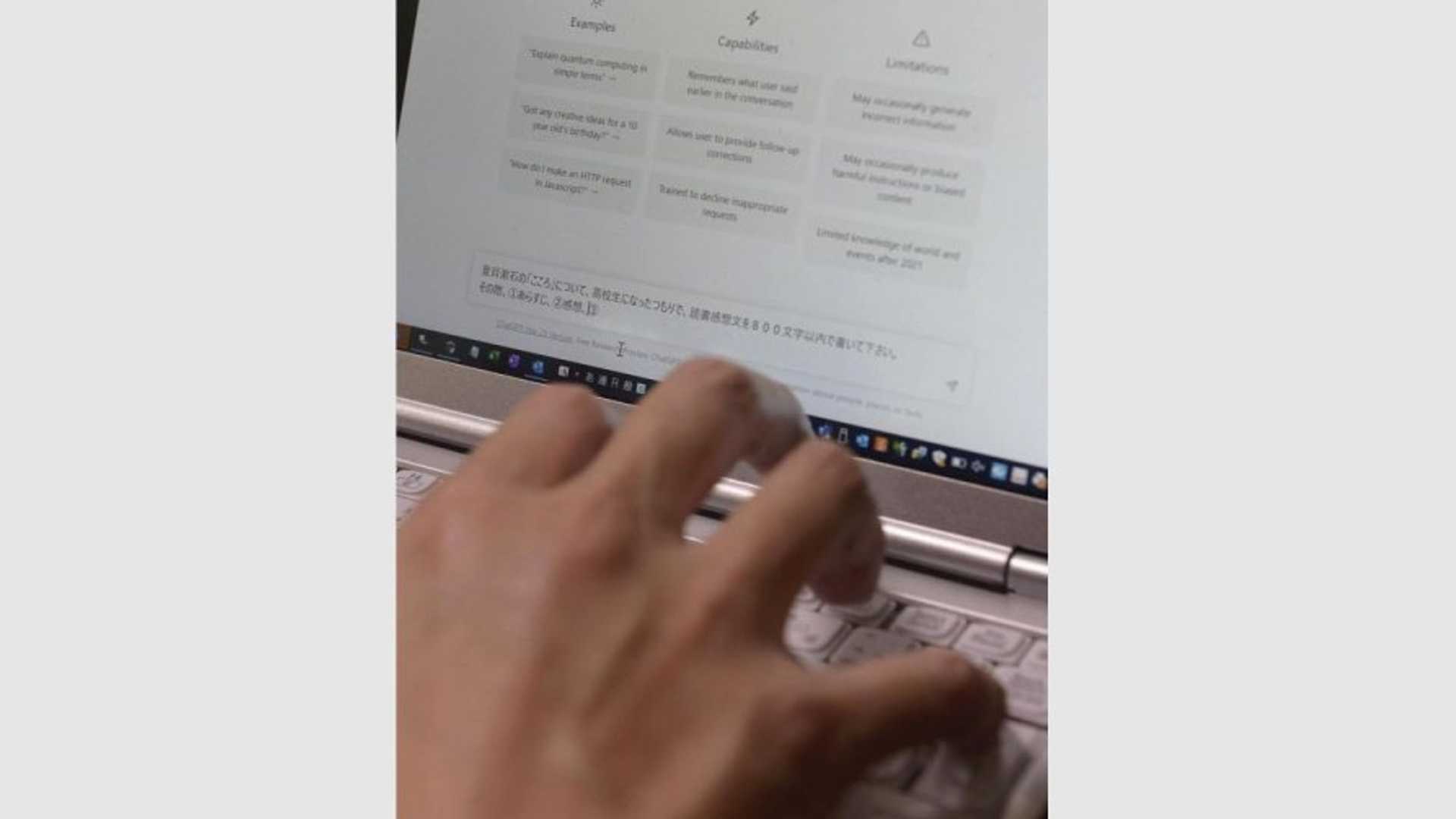ChatGPT causes stir in Japanese education
As the new school year begins, universities and the Education Ministry are taking action against the use of ChatGPT - an AI chatbot - which can complete assignments and book reports in a natural writing style at users’ instruction.
Kyushu University Vice President and Prof. Takeru Nose said that it’s cheating to copy and paste answers from AI and urged students to check the rules of use set forth for each class. The university formed a working group in February to consider how to respond to the spreading use of ChatGPT.
The Education, Culture, Sports, Science and Technology Ministry is studying guidelines for handling ChatGPT in school education. The organizers of a national book report contest for elementary, junior high and high school students have also added a statement to the application guidelines warning against plagiarism and inappropriate quotations.
Prof. Ichiro Sato at the National Institute of Informatics explained that children might believe false information presented by AI if they use it for homework. Moreover, if they are wrongly suspected of using AI to prepare a book report or an essay, there’s no way to clear them of the accusation, which could lead to problems in the future.
Impact on job hunting
Juniors will begin applying for internships soon; companies are allowed to use internship evaluations in their later hiring process. However, the use of ChatGPT is raising questions. One of the application documents often submitted for an internship is an entry sheet (ES), on which applicants must write a self-introduction and their reason for applying. Information can be found online about how to use ChatGPT to compose a self-introduction, as well as posts by people saying they did so.
A recruiter at a leading financial institution said that they’ve already had some students submit an exact copy of the ES presented by a person to whom they offered a job in the past. Now they'll have to take new steps against ChatGPT too.
Measures taken overseas
ChatGPT has already begun to spread in educational settings overseas, and countermeasures have been taken. According to a survey conducted in January by Stanford University’s student newspaper, 17% of the students said they have used ChatGPT for exams and homework.
Students’ electronic devices and bags are collected before exams during some classes at the university. Public schools in New York City do not allow students to use ChatGPT in principle, on the grounds that it does not build their problem-solving skills or critical thinking. Oxford University also does not allow its use for assignments or other purposes.




















